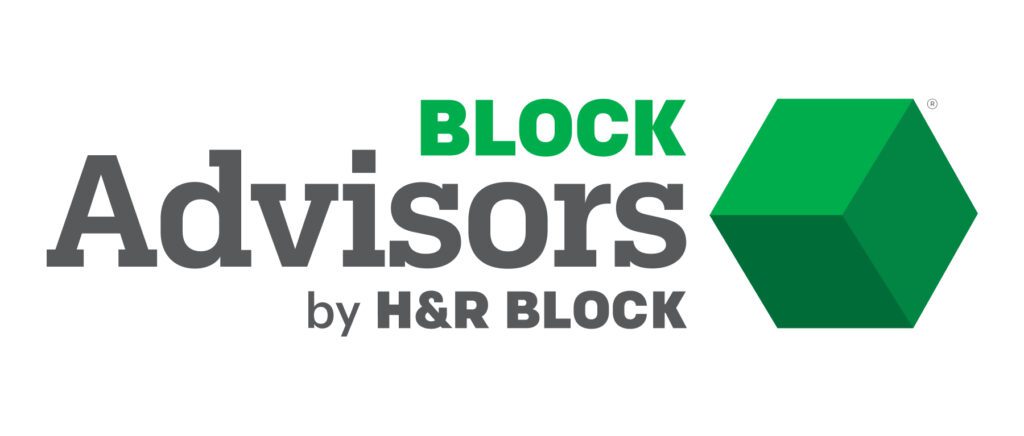5 reasons your small business should start filing taxes early
7 min read
February 22, 2024 • Block Advisors
The tax filing deadline for 2024 is Monday, April 15, 2024. That may seem a way off, but there are some advantages to doing an early tax filing. If you’re feeling overwhelmed, you’re not alone. It’s completely normal to feel overcome at the prospect of wading through the filing process as a small business owner, entrepreneur, or creator. Keep reading to understand the upsides and considerations if you start filing taxes early.
You may wonder, “How early can you file taxes?” Block Advisors is here to encourage you to complete your 2023 tax filing sooner rather than later. Below are five excellent motivators to meet with a Block Advisors tax professional ASAP to get your tax season on track.

Table of Contents
- #1 Stabilize your company’s cash flow
- #2 Streamline financial planning
- #3 Prevent or recognize identity theft
- #4 Start your year on the right foot
- #5 Delaying can cost you and your business
- Get small business tax assistance year-round
#1 Stabilize your company’s cash flow by filing taxes early
Doing your taxes is crucial to your business’ year-round financial health and can provide insights into your estimated taxes for next year. The impact of being able to predict future cash flow is clear when it comes to business and personal finance decision-making.
If you start filing taxes early in the season, you are more likely to finish them on time. Plus, if the IRS happens to owe you a refund, you’ll be able to claim those funds earlier. This may help your cash flow position in the early part of the year.
Even if you find out that your business will have a balance due after your early tax filing, those extra days to make the payment can make cash flow planning a little easier.
Get expert help for your small business taxes
Block Advisors has your back year-round
#2 Streamline financial planning with early tax filing
Completing your tax filing is also a critical piece of finalizing your tax record if you plan to grow your company in the future or apply for personal or business loans, mortgage loans, or financial aid. Financiers often ask business owners to provide copies of their tax returns as proof of income to qualify.
Self-employed individuals and independent contractors are especially likely to receive a request like this since they lack W-2 Forms and pay stubs to verify their taxable income. By filing taxes early, you are more likely to have these critical documents at hand and organized.
For employers of contractors, read more about other forms you may need to bring to your tax appointment, like IRS Form 1096 or Schedule SE.
#3 Filing taxes early may help prevent or recognize identity theft
Filing your taxes promptly protects your identity. If you don’t file your taxes early, it is easier for someone else to file a fraudulent return using your TIN or EIN. It happens more than you might think. In recent years, the number of federal income tax returns with confirmed identity theft has ranged between approximately 600,000 and 1.4 million returns, according to the IRS.
Finishing your small business tax filing sooner this tax season may prevent this from taking place or provide you a heads-up to start the recovery process if someone attempts to steal your identity.
#4 Early tax filing keeps your small business records, reporting, and goals on track
If your entity is structured as a pass-through business, partners and S Corp shareholders are unable to file their personal returns until the business return is filed. Holding off on your business return can keep you and your company stuck in the past tax year. Empower your partners and S Corp shareholders to complete their returns in a timely manner by filing taxes early in the season for your small business.
Furthermore, completing your tax filing early gives you a good snapshot of your business finances from your Profit and Loss statement (See: How a profit and loss statement provides business insight). When you have a complete understanding of your business books, you are empowered to focus 100% of your attention on the future of your company.
Lastly, having a tax form record can be important for moving forward in personal matters. You may need to share your business and personal income tax records during divorce, child support, or other hearings. An early tax filing completion may equip you with important records you’ll need for these proceedings.
Small business bookkeeping for up to 50% less
Save time and money with Block Advisors
#5 Delaying can cost you and your business
You probably know it can be costly to skip out on filing your business taxes. Filing taxes early helps you avoid or mitigate the consequences of not filing taxes. But let’s talk about what happens if you can’t make the April 15 tax deadline.
Ideally, you should take the necessary steps to submit a filing extension using IRS Form 4868 or IRS Form 7004. Next, it is wise to make a good-faith payment toward your estimated taxes or set up a payment plan. It doesn’t matter if you had every intention of turning in the paperwork and paying what you owe on time. If you miss the April 15, 2024, tax deadline, you may be subject to hefty consequences, specifically penalties and interest.
The IRS will assess a Failure to File Penalty if you missed the filing deadline and did not request an extension. The penalty is 5% per month of your unpaid balance, to a maximum of 25%. There is also a Failure to Pay Penalty of 0.5% per month (to a maximum of 25%) of the unpaid balance. Interest is charged at the federal short-term interest rate plus 3%.
Note that the monthly late filing penalty is 10 times higher than the late payment penalty (5% vs. 0.5%) – another reason to file as soon as possible if you miss the deadline and don’t request an extension, even if you can’t pay the balance due just yet. If you make arrangements with the IRS to pay your balance, such as through an installment agreement, the Failure to Pay Penalty drops to 0.25% per month. The best bet is to avoid this by filing taxes early, ideally long before the deadline. But if that is not possible, Block Advisors can work alongside you to set up these arrangements with the IRS.
Do you think you don’t need to file an individual income tax return this year because you’re not expecting to owe Uncle Sam? You might want to think again. The IRS can assess non-filing penalties on corporations and partnerships that don’t file returns, even if the business does not have a balance due.
According to the IRS, taxpayers potentially lose close to $31 billion in assessed penalties each year. Around $7 billion is levied against individual taxpayers and others for failure to pay. That’s a lot of money that could have been potentially saved with an early tax filing. Read more about how to address IRS penalties on your business return.
Get small business tax assistance when filing taxes early
At the end of the day, the longer you wait to file your business return, the more you risk being subject to pricey penalties and interest. Plus, it means waiting longer to secure every tax credit and deduction available with the help of your Block Advisors tax pro. What’s holding you back from filing taxes early?
It’s best to address tax return filing as soon as possible to keep your business bookkeeping on track and optimize your tax position for the calendar year. Don’t wait to file your taxes this season.
Connect to a Block Advisors certified small business tax pro in your neighborhood for help starting your taxes this week.




